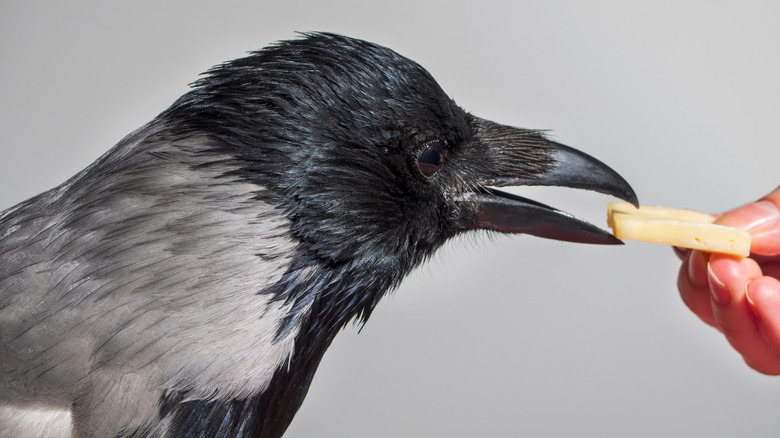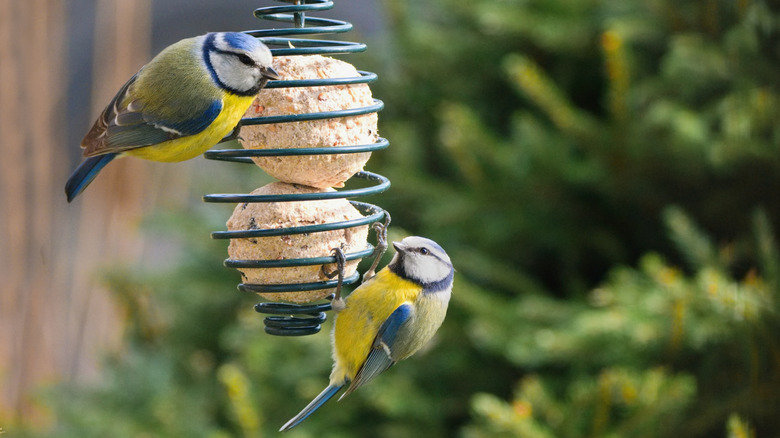Is It Safe To Feed Cheese To The Birds In Your Yard? Here's What To Know
Keeping the feathered friends in your yard happy with their favorite foods is part and parcel of being a good homeowner, but you have to be mindful of what you give them to eat, especially if you're inclined to dip into your own fridge or pantry for their treats. Take cheese, for example. On the surface, it might seem like a harmless food choice. After all, it's just a dairy product. But whether cheese is safe for birds to eat — or if it does them more harm than good — is a controversial topic. One with distinct for and against camps.
Some birding enthusiasts say certain wild birds can safely enjoy small amounts of cheese, particularly in colder months when they need high-energy foods. However, others advise against it, warning that our feathered friends are lactose intolerant and poorly equipped to digest dairy. There's also a big difference between what wild birds might handle and what's downright dangerous for domesticated species like parrots and cockatiels. So what's the verdict? Should you add cheese to your backyard bird buffet? The answer depends on several things, including the type of bird, the kind of cheese, and even the season.
Cheese in moderation (when it might be okay)
A modicum of cheese might be acceptable and even helpful for some wild birds, particularly during the colder months. Cheese is rich in two things birds rely on to maintain energy and body heat when the mercury drops: fat and protein. That's why you'll sometimes find cheese listed as an ingredient in suet cakes or bird food recipes. But before you start heaping shredded cheddar on your bird feeder or throwing it on your lawn, there are a few important caveats. Birds lack the enzyme lactase, which helps mammals digest lactose. While some hard cheeses like cheddar or parmesan contain very little lactose and are safe in small doses, softer or processed cheeses are much harder for them to digest.
Your best bet is to offer plain, unsalted cheese (never anything flavored, moldy, or processed) and keep portions extremely small. Better yet, mix it with other bird-safe foods like seeds or raw oats to dilute it. This approach will also prevent you from inadvertently encouraging uninvited guests to your bird feeder. Species like robins and wrens are more likely to appreciate the occasional bit of cheese. But even then, it should never be a staple. Think of cheese more as a rare winter treat than a regular menu item. Ultimately, it might be safest to skip it altogether and stick with natural, bird-friendly foods. Black oil sunflower seeds, fresh fruits, nuts, or even a DIY suet block offer far more nutritional value without the risks. When in doubt, think like a bird: if it wouldn't be found in nature, it probably doesn't belong in their feeder.

